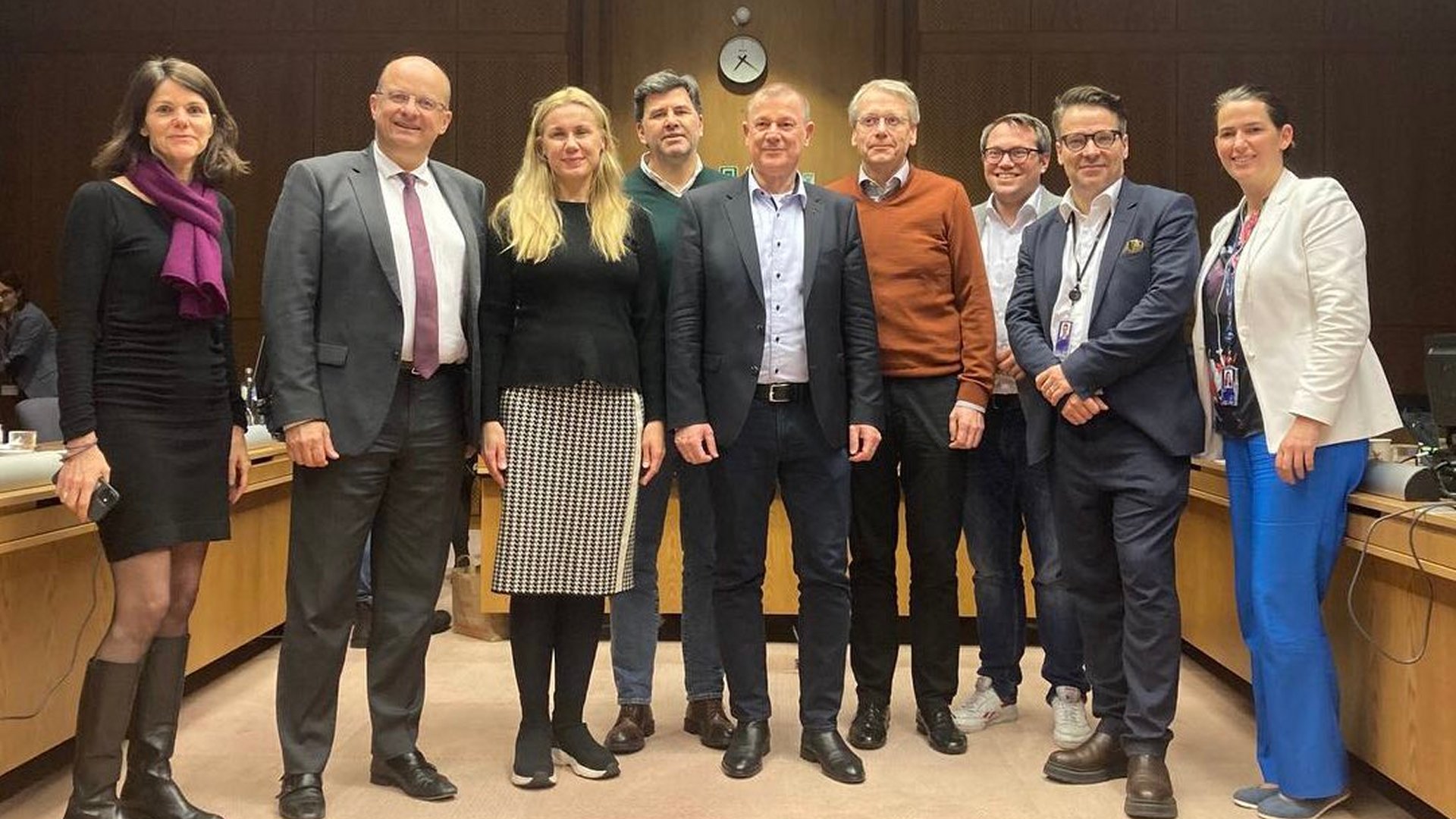EU ups renewable energy requirements for 2030
Agreement criticised for not phasing out soy and palm oil biofuels.
The EU's Council and the Parliament negotiators have reached a provisional agreement to raise the share of renewable energy in the transport industry by 2030.
The revised Renewable Energy Directive (RED) on transport gives the possibility for member states to choose between:
- a binding target of 14.5% reduction of greenhouse gas intensity from the use of renewables by 2030, or
- a binding target of at least 29% share of renewables within the final consumption of energy by 2030 — which in the EU stood at 9.1% in 2021.
In terms of the share of renewable energies supplied to the transport sector, the agreement sets a binding combined sub-target of 5.5%.
- This covers advanced biofuels (generally derived from non-food-based feedstocks), and
- renewable fuels of non-biological origin (mostly renewable hydrogen and hydrogen-based synthetic fuels).
- Within this target, there is a minimum requirement of 1% of renewable fuels of non-biological origin (RFNBOs) in the share of renewable energies supplied to the transport sector in 2030.
Big picture: In its overall target — covering transport; industry; buildings, heating and cooling; and bioenergy — EU negotiators agreed to raise the share of renewable energy in energy consumption to 42.5% by 2030, with an additional 2.5% indicative top up that would allow the figure to reach 45%.
- Eight EU member states — Austria, Denmark, Estonia, Germany, Greece, Luxembourg, Portugal and Spain — had in December issued a joint declaration calling for the 2030 renewable energy target to be raised to 45%, but due to resistance from central and eastern European nations calling for 40%, negotiators in the end met halfway — at 42.5%.
- This will mean roughly doubling the share of renewables in the EU's energy mix, which in 2021 dropped to 21.8%, down from 22.1% in 2020, according to EU statistics.
What they said: Campaign group Transport & Environment (T&E) was critical of the EU's decision not to phase out soy and palm oil biofuels, which it described as "a disaster for forests" as the cap for crop-based biofuels will remain at 2020 levels and their use optional for member states.
- Climate Action Network — representing over 1,500 environmental NGOs — expressed "regret" at the agreement.
- Chiara Martinelli, Director at CAN Europe, remarked: "The ambition level shown by EU policymakers on the Renewable Energy Directive is not in line with what scientific evidence is showing us. If we are serious about reaching climate neutrality, Member States will now need to work together and surpass a 50% EU renewable energy target by 2030."
Next steps: The agreement will first need be submitted to the EU member states' representatives in the Committee of Permanent Representatives in the Council and then in the Parliament for approval.
- The directive will then need to be formally adopted by the Parliament and then the Council, before being published in the EU's Official Journal and entering into force.

|
Swedish biomethane bunkered in Gothenburg
Test delivery performed by St1 and St1 Biokraft, who aim to become large-scale suppliers. |
|
|
|
||

|
Cockett to be closed down after 45 years
End of an era as shareholders make decision based on 'non-core nature' of Cockett's business. |
|
|
|
||

|
Petrobras confirms prompt availability of VLS B24 at Rio Grande
Lead time for barge deliveries currently five days. |
|
|
|
||

|
IMO approves pricing mechanism based on GHG intensity thresholds
Charges to be levied on ships that do not meet yearly GHG fuel intensity reduction targets. |
|
|
|
||

|
VARO Energy expands renewable portfolio with Preem acquisition
All-cash transaction expected to complete in the latter half of 2025. |
|
|
|
||

|
NYK trials biofuel in milestone coal carrier test
Vessel is used to test biofuel for domestic utility company. |
|
|
|
||

|
H-Line Shipping orders LNG bunkering vessel
Vessel with 18,000-cbm capacity to run on both LNG and MDO. |
|
|
|
||

|
How to engineer and manage green shipping fuels | Stanley George, VPS
Effective management strategies and insights for evolving fuel use. |
|
|
|
||

|
Swedish government bans scrubber wastewater discharges
Discharges from open-loop scrubbers to be prohibited in Swedish waters from July 2025. |
|
|
|
||

|
MAN Energy Solutions achieves 100% load milestone for ammonia engine
Latest tests validate fuel injection system throughout the entire load curve. |
|
|
|
||
Related Links
- · EU agrees new rules on cleaner marine fuels [Insights]
- · 25 years of air pollution regulations [Insights]
- · Med ECA approved; zero 2050 target gains traction [Insights]

